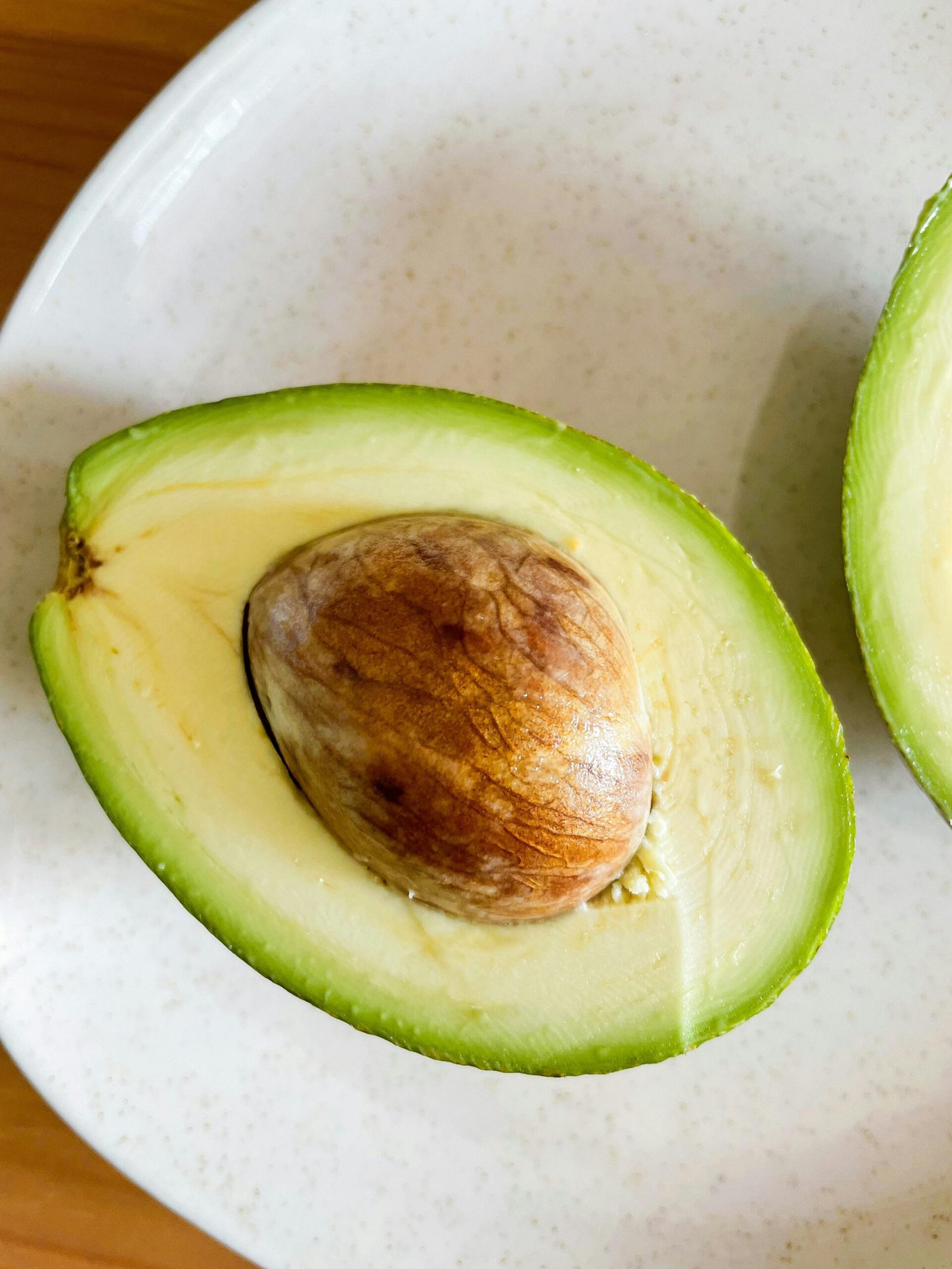Have you ever wondered if a simple change in your diet could help alleviate chronic fatigue? It’s a question that many individuals struggling with this debilitating condition have asked themselves. In this article, we will explore the potential connection between diet and chronic fatigue and uncover some fascinating insights that might just provide you with a new perspective on managing this exhausting condition. So, grab a cup of tea and prepare to discover how the foods you eat could potentially impact your energy levels and overall well-being.

Understanding Chronic Fatigue
Definition of chronic fatigue
Chronic fatigue is a complex and debilitating condition characterized by extreme tiredness or fatigue that lasts for an extended period of time, typically six months or longer. Unlike normal tiredness, which can be alleviated by rest or sleep, chronic fatigue does not improve with rest and can significantly affect your daily functioning and quality of life.
Causes of chronic fatigue
The exact cause of chronic fatigue is not fully understood, and it is likely to be a combination of factors. Some possible causes include viral or bacterial infections, hormonal imbalances, immune system dysfunction, and psychological factors such as stress and depression. It is important to note that chronic fatigue is a complex condition and may vary from person to person.
Symptoms of chronic fatigue
In addition to persistent fatigue, chronic fatigue is often accompanied by a range of other symptoms. These may include muscle and joint pain, headaches, memory and concentration problems, sore throat, swollen lymph nodes, and unrefreshing sleep. Individuals with chronic fatigue may also experience post-exertional malaise, which means that physical or mental activity can worsen their symptoms.
Link Between Diet and Chronic Fatigue
Research on the role of diet in chronic fatigue
While diet alone may not be the sole cause of chronic fatigue, there is growing evidence to suggest that it can play a significant role in both the development and management of the condition. Several studies have indicated that certain dietary patterns can influence energy levels and reduce fatigue in individuals with chronic fatigue. However, it is important to note that more research is needed to fully understand the relationship between diet and chronic fatigue.
Effect of poor nutrition on energy levels
Poor nutrition can have a profound impact on your energy levels and overall well-being. When your body does not receive an adequate supply of essential nutrients, it may not be able to produce sufficient energy for daily activities. This can contribute to feelings of fatigue and worsen the symptoms of chronic fatigue. It’s crucial to prioritize a well-balanced and nutritious diet to support optimal energy levels.
Nutritional deficiencies and chronic fatigue
Certain nutritional deficiencies have been associated with chronic fatigue. For example, low levels of Iron, vitamin D, B vitamins, and magnesium have been linked to fatigue and low energy levels. Including a variety of nutrient-rich foods in your diet can help ensure that you are meeting your body’s nutritional needs and may help alleviate symptoms of chronic fatigue.
Key Nutrients for Energy
Importance of carbohydrates
Carbohydrates are the primary source of energy for your body. They provide glucose, which is used by your cells to produce energy. Including complex carbohydrates such as whole grains, fruits, vegetables, and legumes in your diet can provide a steady release of energy throughout the day. Be sure to choose carbohydrates that are high in fiber and low in added sugars to maintain stable energy levels.
Significance of protein
Protein is essential for repairing and building tissues, as well as providing energy. Consuming adequate amounts of protein can help support muscle strength and prevent muscle wasting, which is often associated with chronic fatigue. Good sources of protein include lean meats, poultry, fish, eggs, dairy products, legumes, and nuts.
Essential fats for energy production
Healthy fats, such as omega-3 fatty acids, are vital for energy production and brain function. Foods rich in omega-3s include fatty fish (like salmon and sardines), chia seeds, flaxseeds, and walnuts. Including these fats in your diet can help improve energy levels and reduce inflammation, which may contribute to chronic fatigue.
Vitamins and minerals for combating fatigue
Certain vitamins and minerals are crucial for combating fatigue and optimizing energy levels. Vitamin B12, found in animal products like meat and dairy, plays a vital role in energy production. Iron, found in meat, poultry, and legumes, is important for healthy red blood cells that carry oxygen to your tissues. Additionally, magnesium, found in leafy green vegetables, nuts, and seeds, is involved in energy metabolism. Including a wide variety of fruits, vegetables, whole grains, lean proteins, and dairy or dairy alternatives in your diet can help ensure adequate intake of these essential nutrients.
Anti-Inflammatory Diet and Chronic Fatigue
Understanding inflammation and its impact on fatigue
Inflammation is a natural response by your immune system to injury or infection. However, chronic inflammation can contribute to fatigue and worsen the symptoms of chronic fatigue. Adopting an anti-inflammatory diet can help reduce inflammation in your body, potentially improving energy levels and overall well-being.
Foods to include in an anti-inflammatory diet
An anti-inflammatory diet focuses on consuming foods that have been shown to reduce inflammation in the body. These include fruits and vegetables, particularly those rich in antioxidants such as berries, leafy greens, and colorful vegetables. Healthy fats, like those found in fatty fish, avocados, olive oil, and nuts, are also beneficial. Additionally, including spices such as turmeric, ginger, and garlic in your cooking can provide additional anti-inflammatory benefits.
Foods to avoid in an anti-inflammatory diet
To reduce inflammation, it is important to limit or avoid foods that can promote inflammation in the body. These include processed foods high in refined sugars and unhealthy fats, such as fried foods, sugary snacks and beverages, and processed meats. Additionally, minimizing your intake of alcohol and caffeine can also be beneficial for managing inflammation and fatigue.

Gut Health and Chronic Fatigue
Connection between gut health and fatigue
Emerging research has highlighted the importance of a healthy gut in managing chronic fatigue. The gut and its trillions of resident bacteria, collectively known as the gut microbiota, play a crucial role in various bodily functions, including immune function and mood regulation. Imbalances in the gut microbiota, often referred to as dysbiosis, have been associated with chronic fatigue syndrome.
Role of probiotics in improving energy levels
Probiotics are beneficial bacteria that can help restore and maintain a healthy gut microbiota. Some studies suggest that certain probiotics may help improve energy levels and reduce fatigue in individuals with chronic fatigue. Including probiotic-rich foods, such as yogurt, kefir, sauerkraut, and kimchi, or taking a high-quality probiotic supplement may be beneficial for gut health and overall well-being.
Foods that promote a healthy gut
Consuming a diverse range of fiber-rich foods can promote a healthy gut microbiota. Include plenty of fruits, vegetables, whole grains, legumes, and nuts in your diet to provide nourishment for the beneficial bacteria in your gut. Additionally, fermented foods like yogurt, kefir, sauerkraut, and kombucha can introduce beneficial bacteria into your gut and support a healthy gut microbiota.
Elimination and Food Sensitivity
Link between food sensitivities and chronic fatigue
Food sensitivities, also known as food intolerances, occur when your body has difficulty digesting certain foods. This can lead to a variety of symptoms, including fatigue. Identifying and eliminating trigger foods from your diet may help reduce fatigue and improve overall well-being in individuals with chronic fatigue.
Common food sensitivities
Some common food sensitivities include gluten, dairy, soy, eggs, and certain types of nuts. However, food sensitivities can vary from person to person, and it may be necessary to work with a healthcare professional, such as a registered dietitian, to determine your specific sensitivities through methods like elimination diets or food sensitivity testing.
Importance of elimination diets
Elimination diets involve removing specific foods or food groups from your diet for a period of time and then gradually reintroducing them to identify any food sensitivities or triggers that may be contributing to your symptoms of chronic fatigue. This process requires careful monitoring and guidance from a healthcare professional to ensure you maintain a balanced diet while identifying and managing any potential food sensitivities.

Eating for Energy
Importance of regular and balanced meals
Eating regular, balanced meals is essential for maintaining stable energy levels throughout the day. Skipping meals or relying on irregular eating patterns can lead to energy dips and fatigue. Aim to include a combination of carbohydrates, protein, and healthy fats in each meal to provide a steady release of energy and keep you feeling satisfied.
Optimizing meal timing for energy levels
In addition to meal composition, meal timing can also impact your energy levels. Eating smaller, more frequent meals throughout the day can help keep your blood sugar levels stable and prevent energy crashes. Aim to have breakfast within an hour of waking up and include snacks between meals if needed to maintain optimal energy levels.
Tips for eating for energy throughout the day
To optimize your energy levels throughout the day, consider the following tips:
- Start your day with a balanced breakfast that includes protein, complex carbohydrates, and healthy fats.
- Include a variety of fruits and vegetables in your meals to provide essential vitamins and minerals.
- Choose whole grains over refined grains to ensure a steady release of energy.
- Incorporate lean proteins to support muscle strength and energy production.
- Stay hydrated by consuming enough water and hydrating foods throughout the day.
- Limit your intake of caffeine and sugary snacks, as they can cause energy crashes and contribute to fatigue.
Hydration and Chronic Fatigue
Impact of dehydration on energy levels
Dehydration can have a significant impact on your energy levels and overall well-being. Even mild dehydration can cause fatigue, headaches, and poor concentration. It is important to maintain adequate hydration throughout the day to support optimal energy levels.
Recommended daily water intake
The recommended daily water intake varies depending on factors such as age, sex, activity level, and overall health. As a general guideline, aim to drink at least eight 8-ounce glasses of water per day, which equals about 2 liters or half a gallon. However, individual hydration needs may vary, so it’s important to listen to your body’s thirst signals and adjust your fluid intake accordingly.
Hydrating foods and beverages
In addition to drinking water, you can also stay hydrated by consuming foods and beverages with high water content. Fruits and vegetables, such as watermelon, cucumbers, oranges, and strawberries, are particularly hydrating. Herbal teas, coconut water, and homemade smoothies can also contribute to your daily fluid intake while providing additional nutrients.
Potential Diet Pitfalls
Over-reliance on caffeine and sugar
While caffeine and sugary snacks may provide a temporary energy boost, relying on them as a primary source of energy can lead to energy crashes and worsen fatigue in the long run. These substances can disrupt your sleep patterns and contribute to fatigue during the day. It’s important to consume them in moderation and focus on more sustainable sources of energy, such as a well-balanced diet and adequate rest.
Unhealthy processed food choices
Processed foods, such as fast food, packaged snacks, and sugary drinks, are often high in unhealthy fats, sodium, and added sugars. These foods lack essential nutrients and can leave you feeling sluggish and fatigued. Opting for whole, minimally processed foods whenever possible can provide the necessary nutrients to support your energy levels and overall health.
Inadequate calorie intake
Severely restricting calorie intake or following a very low-calorie diet can deprive your body of the energy it needs to function properly. This can lead to fatigue, weakness, and other negative health effects. It’s important to ensure you are consuming enough calories to meet your body’s energy needs, which can vary depending on factors such as age, sex, activity level, and overall health.
Seeking Professional Guidance
Importance of consulting a healthcare professional
When dealing with chronic fatigue, it is important to consult a healthcare professional, such as a doctor or registered dietitian, before making any significant changes to your diet. They can help determine the underlying causes of your fatigue and develop a personalized plan to address your specific needs.
Registered dietitians and nutritionists
Registered dietitians and nutritionists are trained professionals who specialize in nutrition and can provide expert guidance on dietary interventions for chronic fatigue. They can assess your current diet, identify potential deficiencies or areas for improvement, and work with you to develop a tailored plan that meets your nutritional and energy needs.
Tailoring a diet plan to individual needs
Every individual is unique, and what works for one person may not work for another. A healthcare professional can help assess your specific needs and develop a personalized diet plan that takes into account your dietary preferences, any food sensitivities or allergies, and existing health conditions. This tailored approach ensures that you are making the most effective dietary changes to support your energy levels and overall well-being.
In conclusion, while there is no one-size-fits-all solution for chronic fatigue, making positive changes to your diet can play a significant role in managing and potentially reducing its impact. Prioritizing key nutrients for energy, incorporating an anti-inflammatory diet, supporting gut health, identifying and eliminating food sensitivities, optimizing meal timing and hydration, and avoiding potential diet pitfalls can all contribute to improved energy levels and overall well-being. Remember to consult a healthcare professional for personalized guidance and support on your journey to eating for energy and managing chronic fatigue.
Losing weight and keeping it off can be a challenge. I’m here to show you good-tasting foods and drinks that help you lose weight, and are enjoyable to eat.



